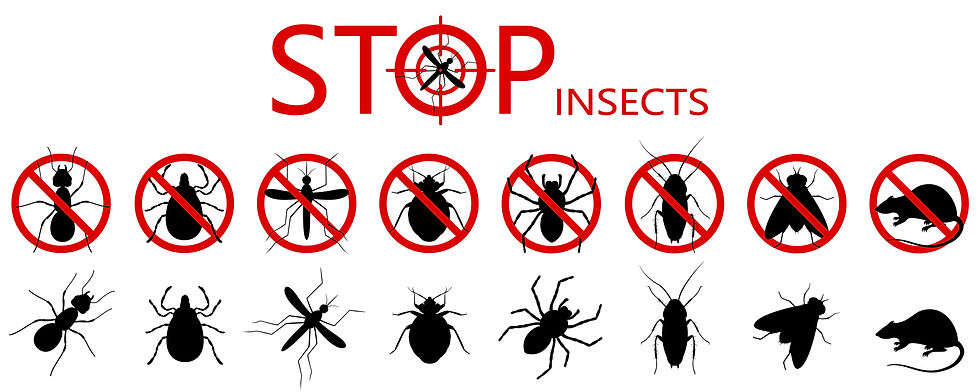10 Things You Never Knew About Flies and Their Role in Ecosystems
- Oct 3, 2023
- 2 min read
Flies are one of the most common insects found in our daily lives. They are everywhere, hovering around our food and buzzing around our heads. Flies are often seen as pests that need to be swatted away, but did you know that they play an important role in our ecosystem? In this blog post, we will explore 10 things you never knew about flies and their role in our environment. We will also look at how Wake Forest pest control can help manage fly populations.
1. Fly Lifespan: Flies have a very short life span. On average, a fly lives only about 28 days. The eggs that flies lay hatch into maggots, which then transform into pupae. The pupae then metamorphose into adult flies in as little as seven days. This rapid life cycle means flies can quickly reproduce and establish large populations.
2. Fly Diet: Flies feed on a variety of substances, including decomposing organic material, plant nectar, and animal waste. However, they also feed on blood and can transmit diseases, making it important to keep their populations in check.
3. Fly Pollinators: Many species of flies play a crucial role in pollinating plants. They are especially important in areas where bees are scarce.
4. Fly Predators: Some species of flies are predators, feeding on other insects. This helps to keep other pest populations under control.
5. Fly Sight: Flies have compound eyes, which are made up of many tiny lenses that work together to create a wide field of vision. This allows flies to see in almost every direction at once.
6. Fly Sensitivity: Flies are very sensitive to movement and can detect even slight disturbances in the air. This is why they are often able to avoid being swatted.
7. Fly Noise: The buzzing sound that flies make is the result of their wings beating rapidly. Some species of flies can beat their wings up to 1,000 times per second.
8. Fly Disease Carriers: Flies can carry a wide range of diseases, including salmonella and E. coli. It is important to keep flies under control to avoid the spread of disease.
9. Fly Control: There are many methods for controlling fly populations, including implementing good sanitation practices, using fly traps, and using insecticides. Wake Forest pest control can provide expert guidance on managing fly populations.
10. Fly Management: Good fly management practices are essential for maintaining a healthy ecosystem. Controlling fly populations helps to reduce the spread of disease and maintain a balanced predator-prey relationship in the environment.
In conclusion, flies play a much more important role in our environment than we may have thought. From pollinators to predators, flies are an essential part of the ecosystem. However, it is important to manage fly populations to prevent the spread of disease and maintain a healthy ecosystem. Wake Forest pest control can provide expert guidance on effective fly management practices. By implementing good fly management practices, we can help to maintain a healthy environment and protect ourselves from the diseases that flies can carry.
Learn more about this topic here: https://en.wikipedia.org/wiki/Fly




Comments